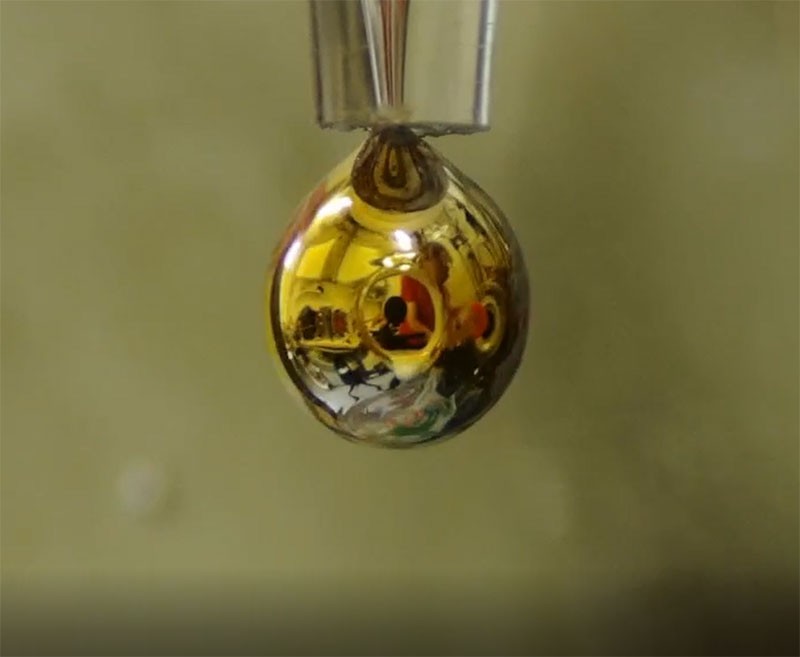If you can’t turn water into gold like a good alchemist would, the next best thing might be to transform water itself into a shiny, metallic material. Researchers have achieved that feat by forming a thin layer of water around electron-sharing alkali metals. The water stayed in a metallic state for a only few seconds, but the experiment did not require the high pressures that are normally needed to turn non-metallic materials into electrically conductive metals.
Co-author Pavel Jungwirth, a physical chemist at the Czech Academy of Sciences in Prague, says that seeing the water take on a golden shine was a highlight of his career. The team published its findings on 28 July in Nature.
The team wanted to try the same approach with water instead of ammonia, but faced a challenge: alkali metals tend to react explosively when mixed with water. The solution was to design an experimental set-up that would dramatically slow the reaction so that it would not be explosive. The researchers filled a syringe with sodium and potassium, a mixture that is liquid at room temperature, and placed it in a vacuum chamber. They then used the syringe to form droplets of the metal mixture and exposed them to small amounts of water vapour. The water condensed onto each droplet and formed a layer one-tenth of a micrometre thick. Electrons from the droplet then quickly diffused into the water — together with positive metallic ions — and, within a few seconds, the water layer turned golden.
Source: Nature News
